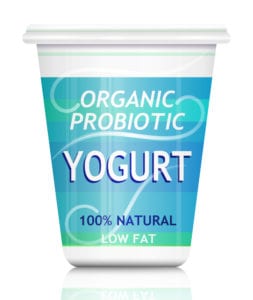Written by Jessica Patella, ND. A combination of probiotics Lactobacillus paracasei, Lactobacillus casei, and Lactobacillus fermentum significantly reduced the incidence and severity of upper respiratory infection in participating subjects compared to placebo.
 According to the National Center for Complementary and Integrative Heath, probiotics are the third most used natural medicine in the United States 1. Research is supporting the use of probiotics when it comes to health, mostly because of the gut microflora having a role in the immune system 2. Recent research has found that supplementing probiotics in participants with multiple colds/flus per year can boost the immune system functioning 2.
According to the National Center for Complementary and Integrative Heath, probiotics are the third most used natural medicine in the United States 1. Research is supporting the use of probiotics when it comes to health, mostly because of the gut microflora having a role in the immune system 2. Recent research has found that supplementing probiotics in participants with multiple colds/flus per year can boost the immune system functioning 2.
Bacteria cells outnumber human cells in the body by 10:1, with 10-100 trillion bacteria living in the gastrointestinal tract alone 2,3. Probiotics are thought to stimulate the immune response of the body by increasing production of immune cells in the body (such as IgA, phagocytes and T-cells) 2,4.
Recent research included 136 participants from 25-45 years of age that had the common cold or influenza at least 4 times in the previous year. Participants were randomly divided into a placebo yogurt drink (n=68) or a probiotic yogurt drink group (n=68). Both groups had the same yogurt starter containing Lactobacillus bulgaricus and Streptococcus thermophiles and the probiotic drink had additional Lactobacillus paracasei, Lactobacillus casei, and Lactobacillus fermentum 2. Participants received once daily doses of the drink (150mL) to be consumed after lunch for 12-weeks 2.
The results were as follows:
- A total of 11 participants (16.4%) from the placebo group and 3 participants (4.5%) from the probiotic group had flu-like symptoms (fever over 100.4 degrees F) and at least one upper respiratory/ cold symptom (cough, congestion, headache, muscles pain) during the 12-week study (p<0.034).
- A total of 25 participants (37.3%) from the placebo group and 13 participants (19.4%) from the probiotic group experienced no fever, but did experience at least one upper respiratory/cold symptom (cough, congestion, headache, muscles pain) during the 12-week study (p<0.023).
- A total of 24 participants (35.8%) from the placebo group and 3 participants (4.5%) from the probiotic group received drug treatment for their symptoms during the study (P<0.001).
- The average days of having a cold (5.38 vs 7.96 days) and total severity (17.62 vs 22.80) of the cold (URI) symptoms in participants that experienced a cold/flu were statistically less in the probiotic group than then placebo group (p<0.002 and p<0.028, respectively). However days of sick leave, were not statistically different between the groups.
The probiotic group also showed higher levels of IgA in stool samples (p<0.001)
In conclusion, a combination of probiotics Lactobacillus paracasei, Lactobacillus casei, and Lactobacillus fermentum reduced the incidence and severity of upper respiratory infection, otherwise known as the common cold and flu 2. This could possibly be due to the increase in IgA in the gastrointestinal system 2. Future research into probiotic combinations should be investigated for others diseases as well 2.
Source: Zhang, Hong, Chiajung Yeh, Zonglian Jin, Liwei Ding, Bryan Y. Liu, Li Zhang, and H. Kathleen Dannelly. “Prospective study of probiotic supplementation results in immune stimulation and improvement of upper respiratory infection rate.” Synthetic and Systems Biotechnology 3, no. 2 (2018): 113-120.
© 2018 the Authors. Production and hosting by Elsevier B.V. on behalf of KeAi Communications Co. This is an open access article under the CC BY-NC-ND license (http://creativecommons.org/licenses/by-nc-nd/4.0/)
Click here to read the full text study.
Posted June 12, 2018.
References:
- Health NCfCaI. Use of Complementary Health Approaches in the U.S.: Most Used Natural Products. 2017; Use of probiotics and prebiotics in the U.S. in 2012. Available at: https://nccih.nih.gov/research/statistics/NHIS/2012/natural-products/biotics. Accessed June 7, 2018, 2018.
- Zhang H, Yeh C, Jin Z, et al. Prospective study of probiotic supplementation results in immune stimulation and improvement of upper respiratory infection rate. Synthetic and Systems Biotechnology. 2018;3(2):113-120.
- Turnbaugh PJ, Ley RE, Hamady M, Fraser-Liggett CM, Knight R, Gordon JI. The human microbiome project. Nature. 2007;449(7164):804.
- Guarner F, Malagelada J-R. Gut flora in health and disease. The Lancet. 2003;361(9356):512-519.

